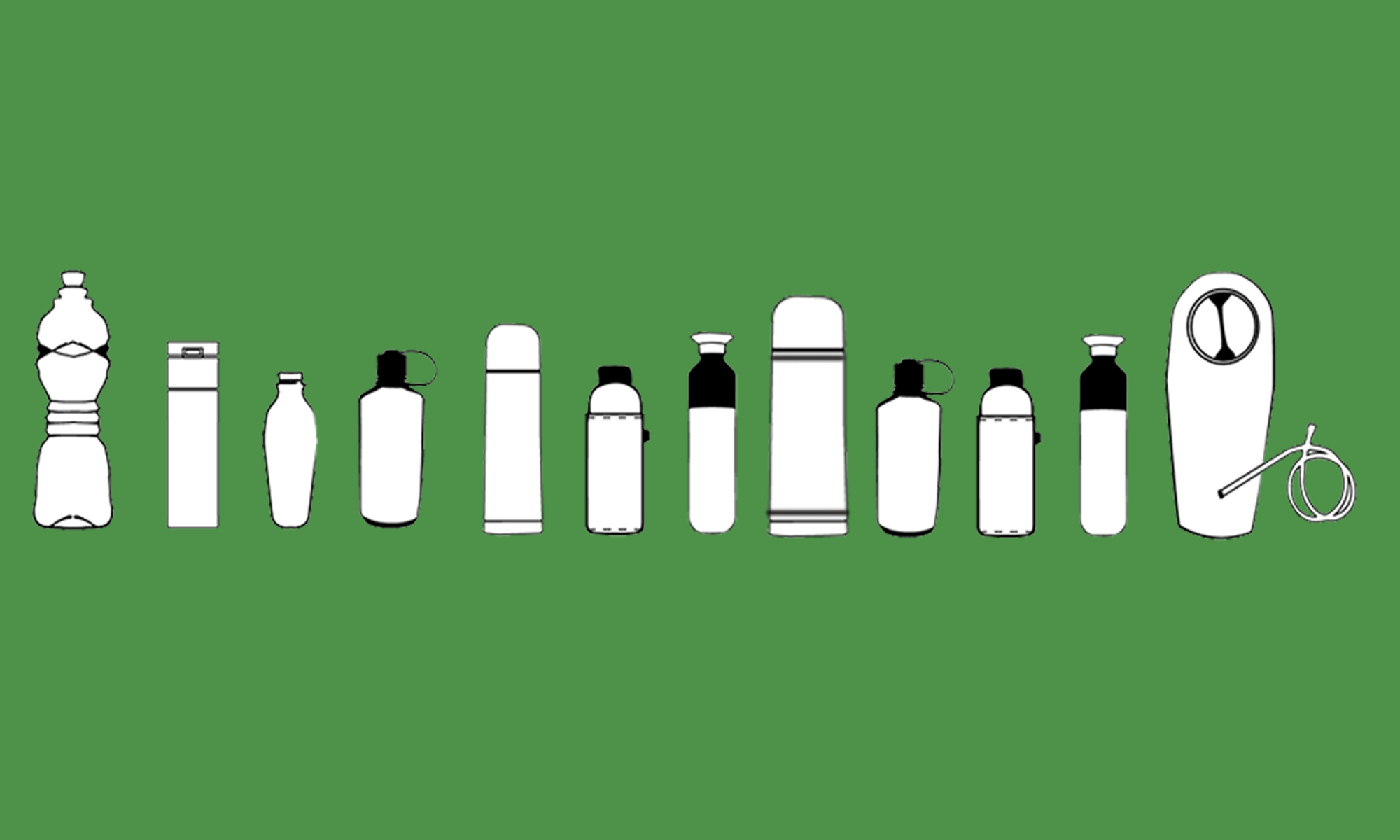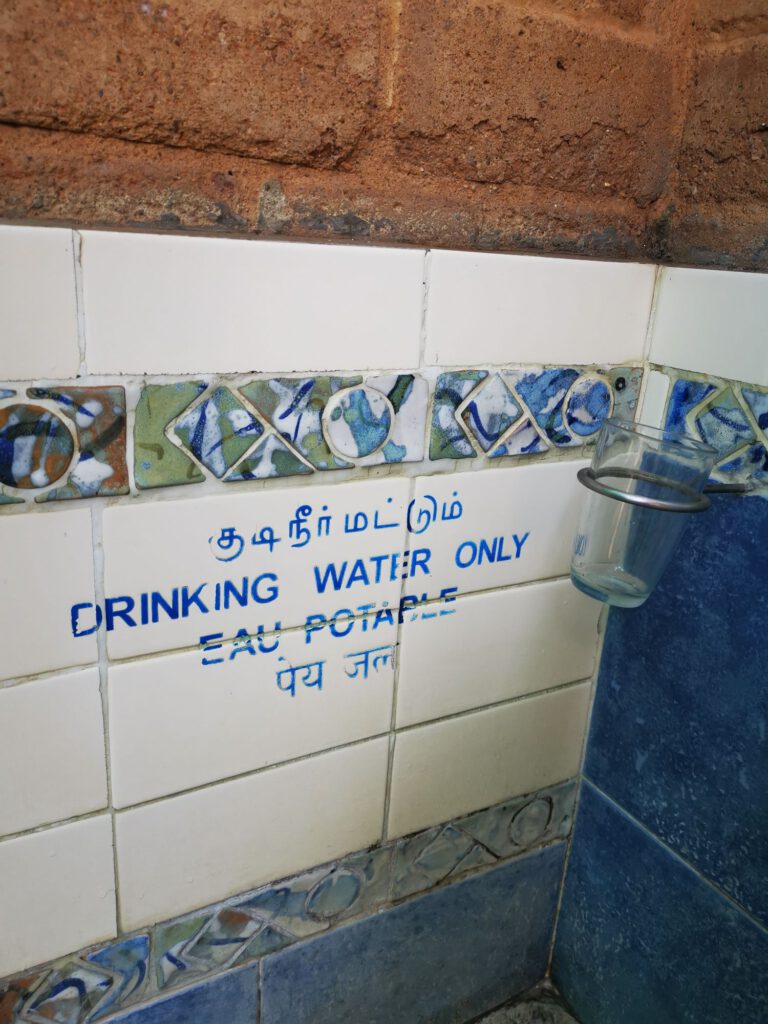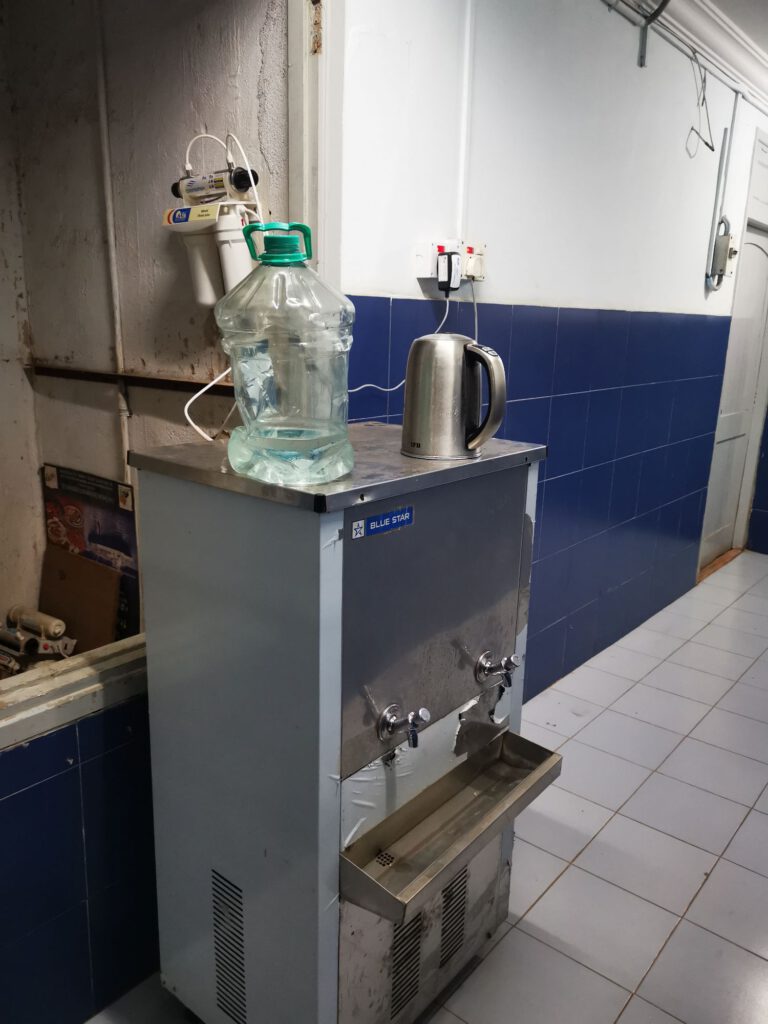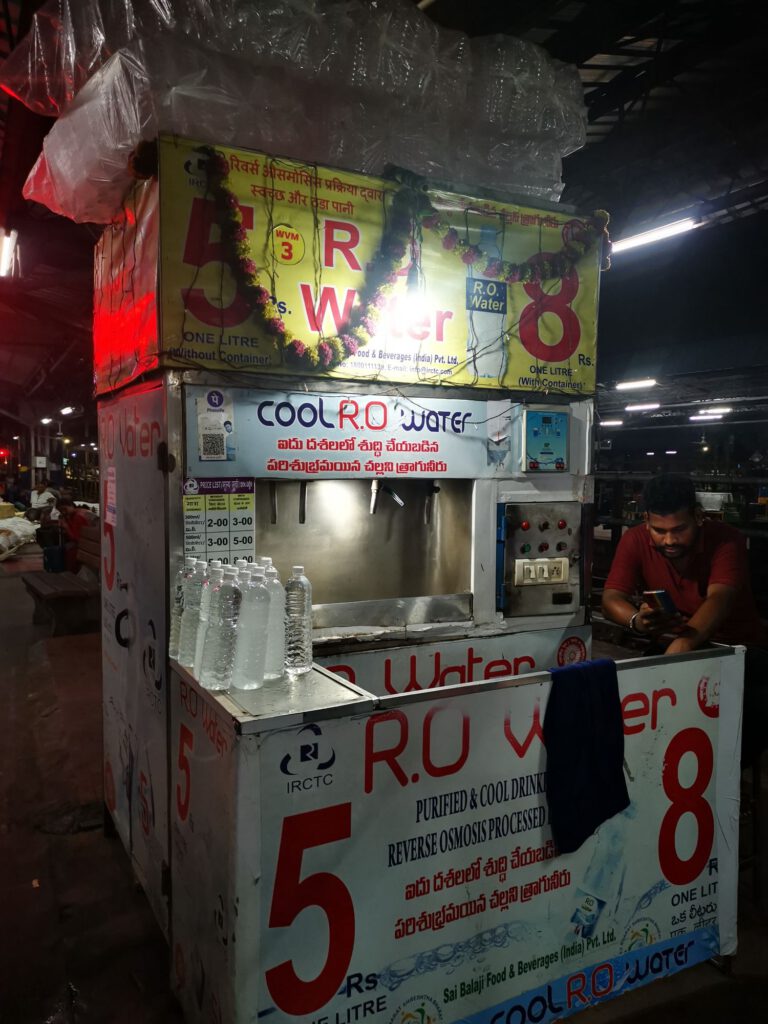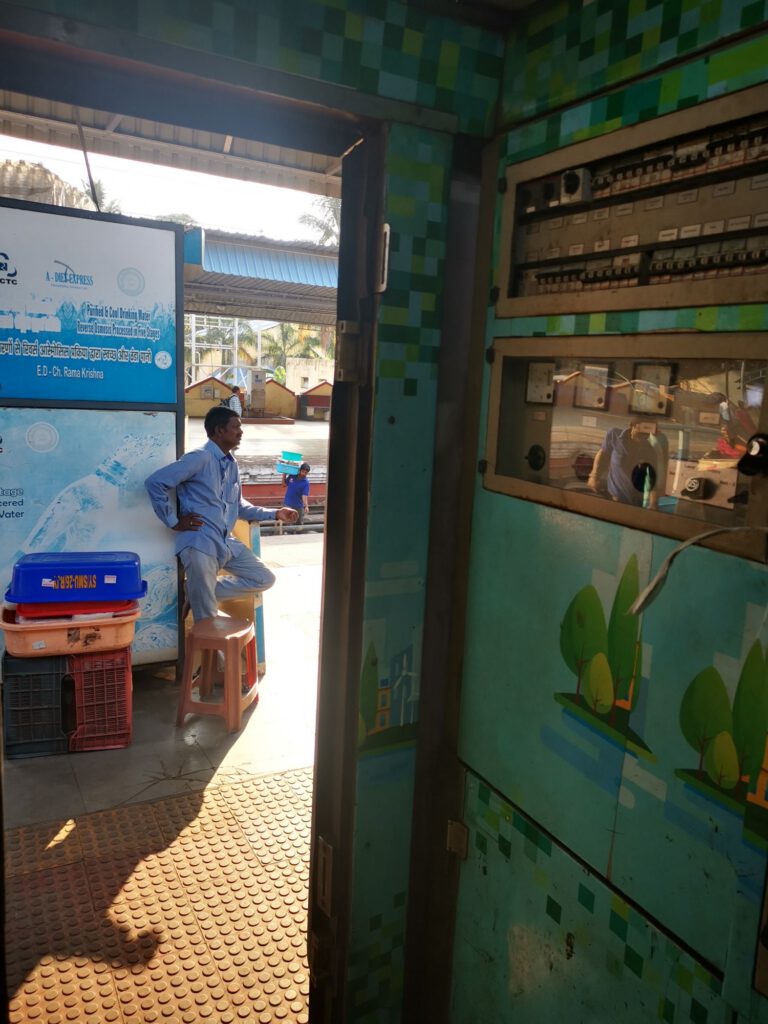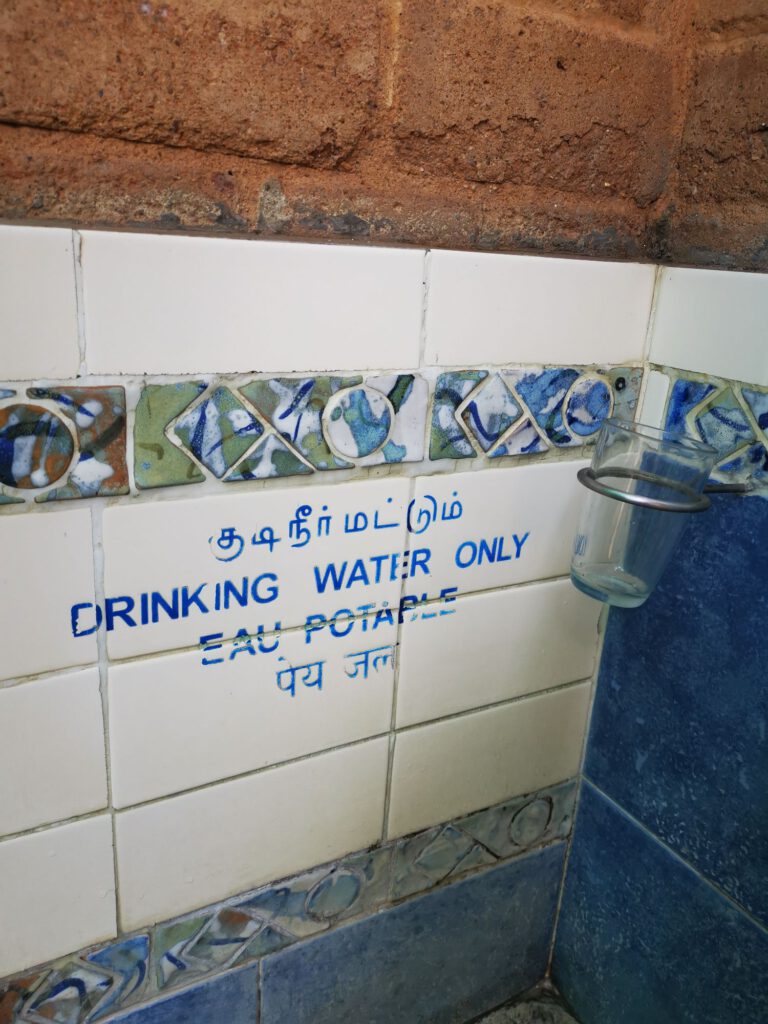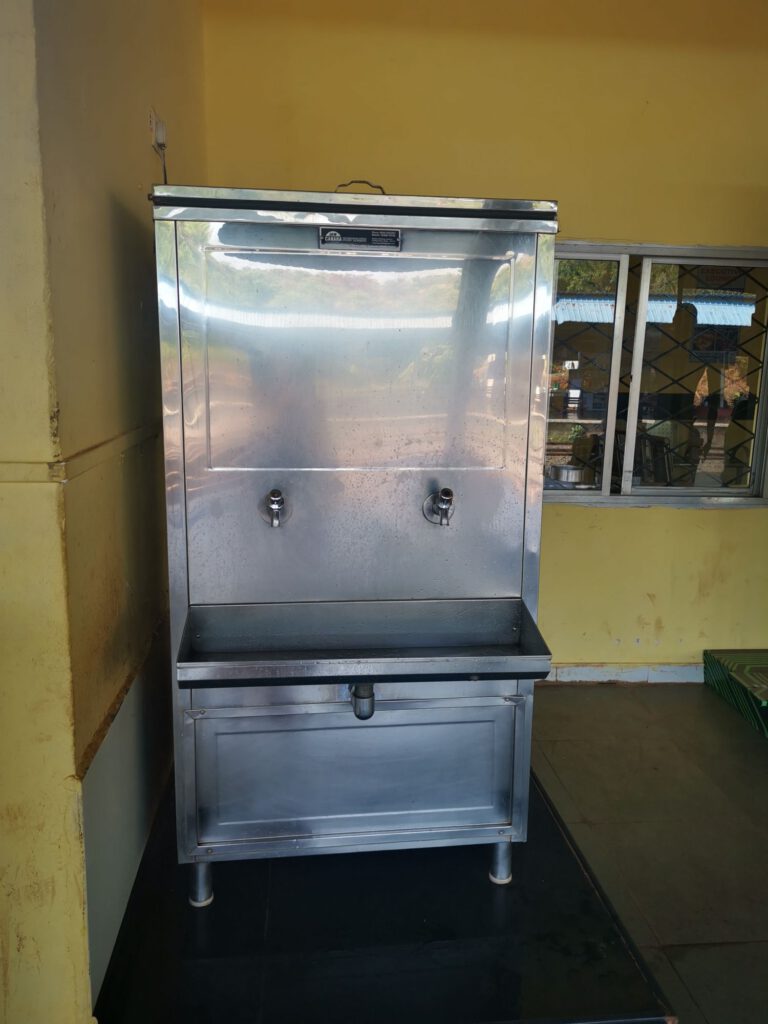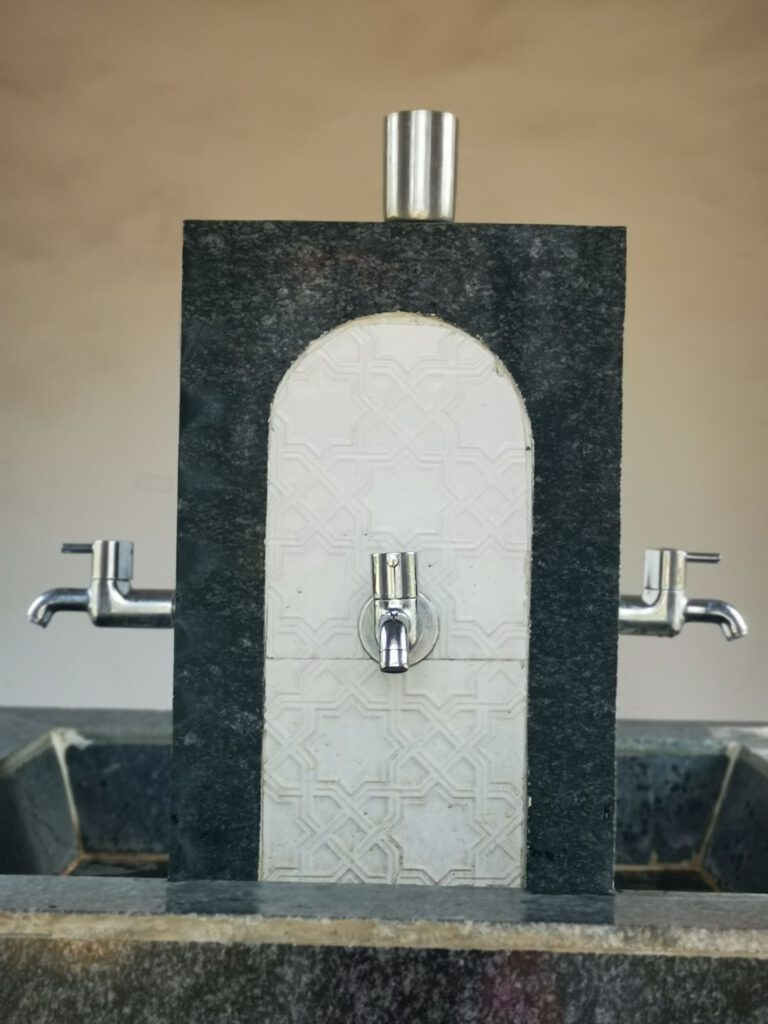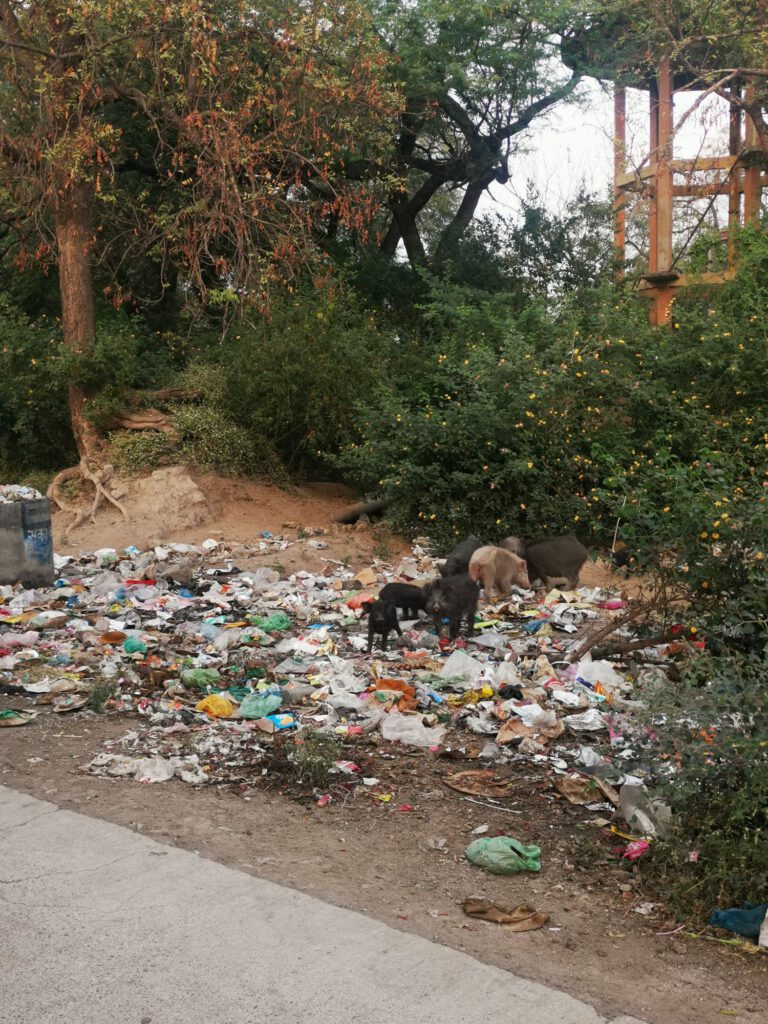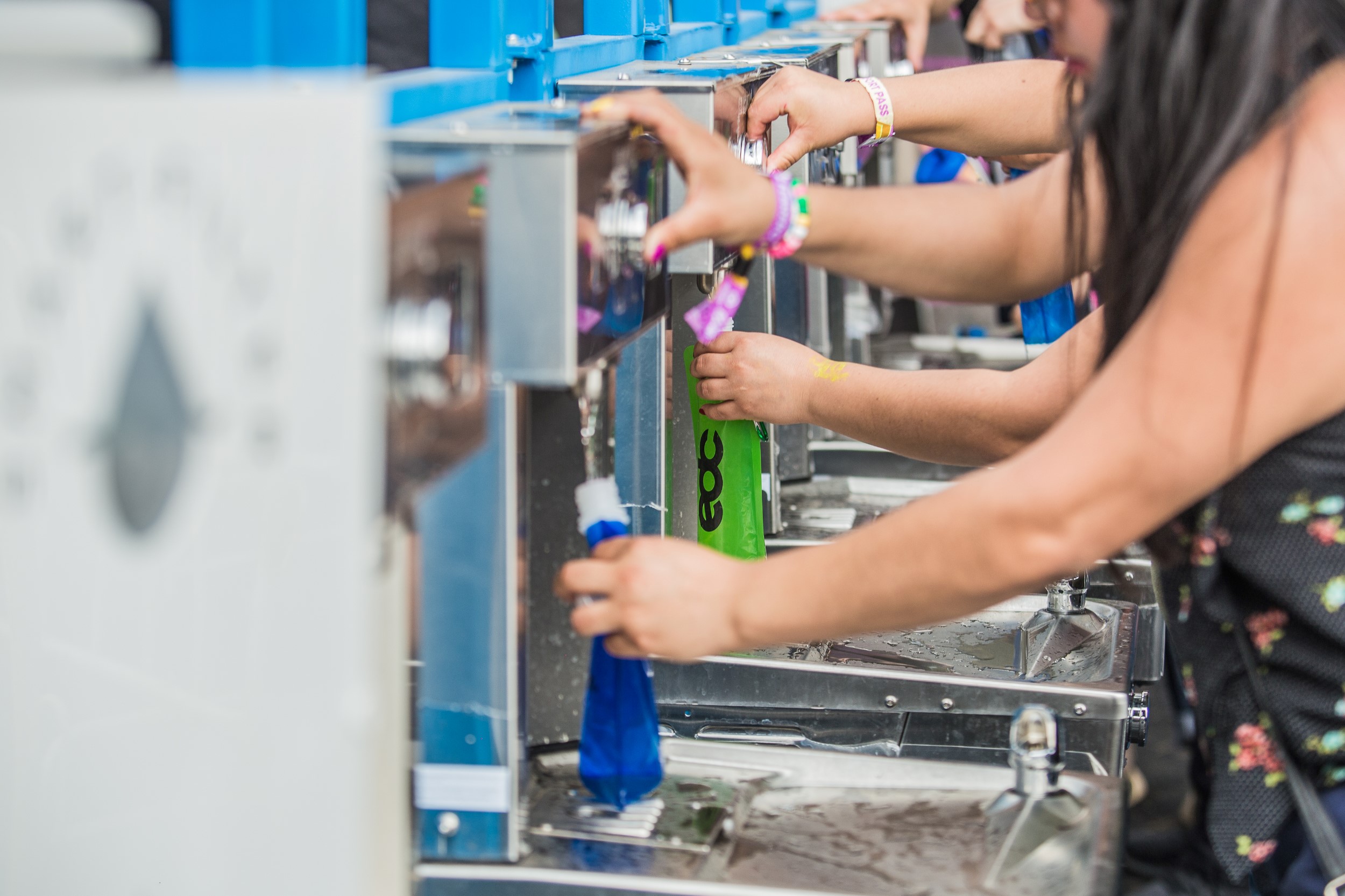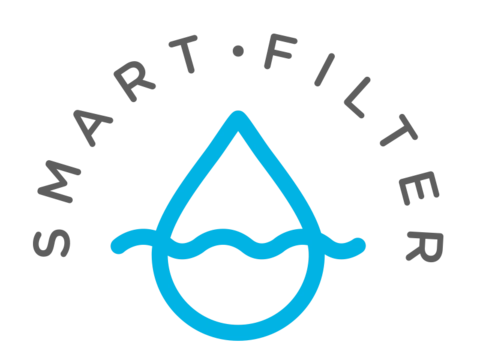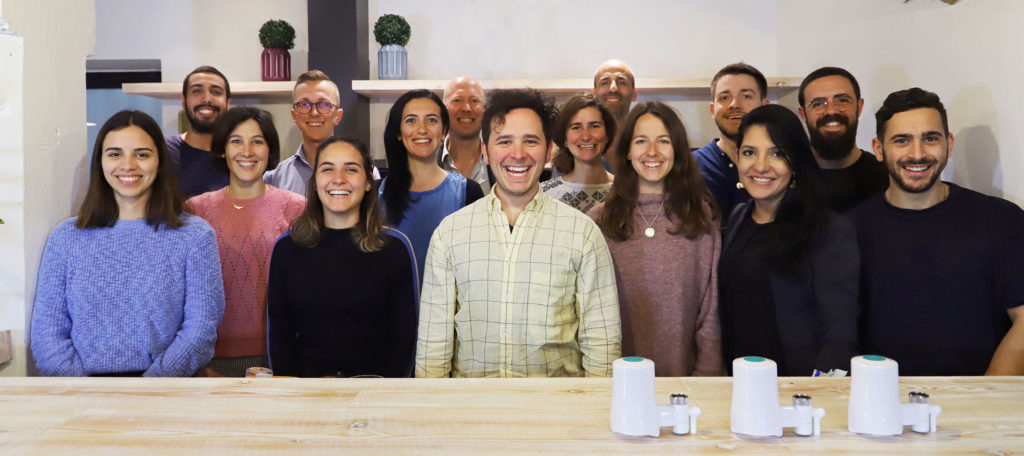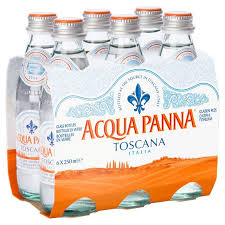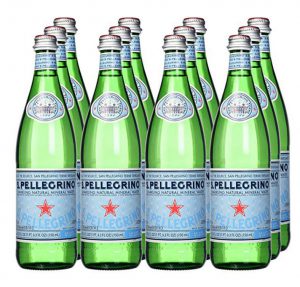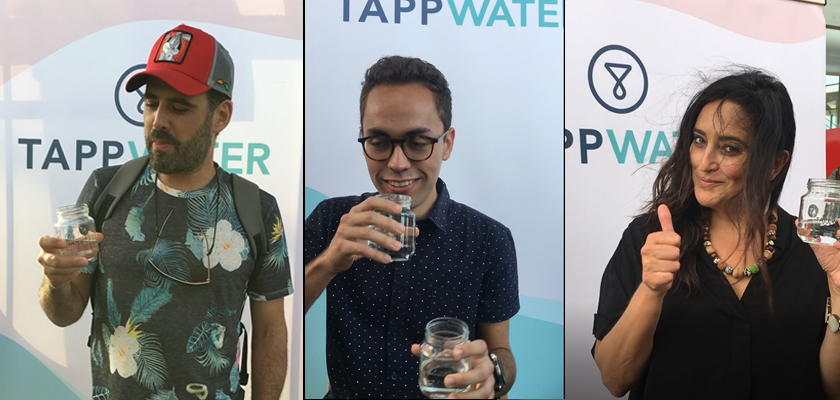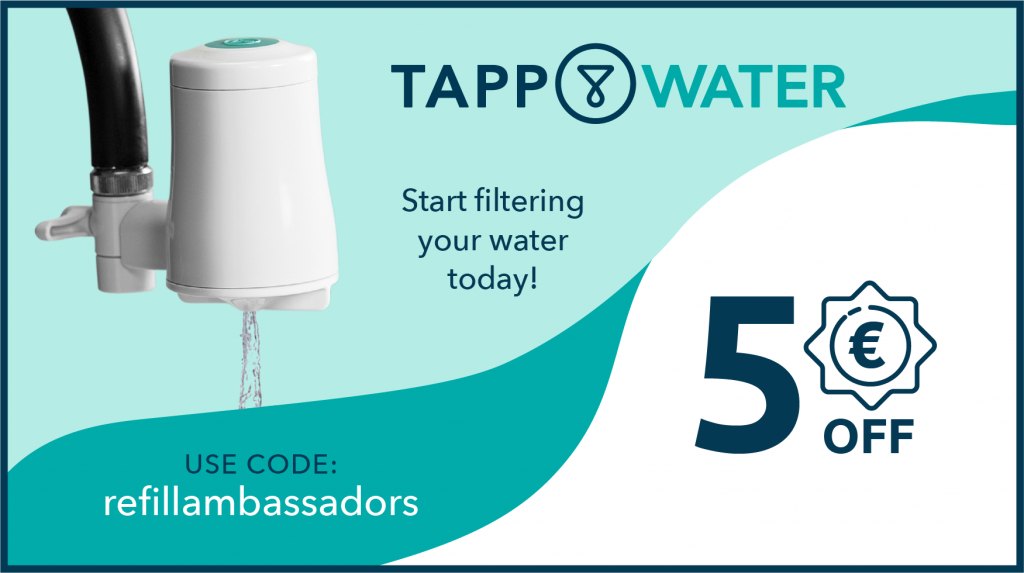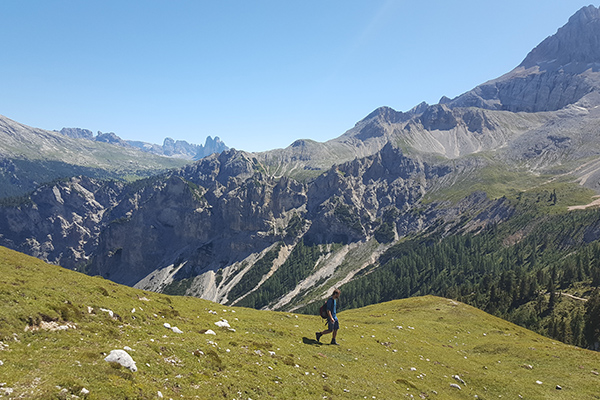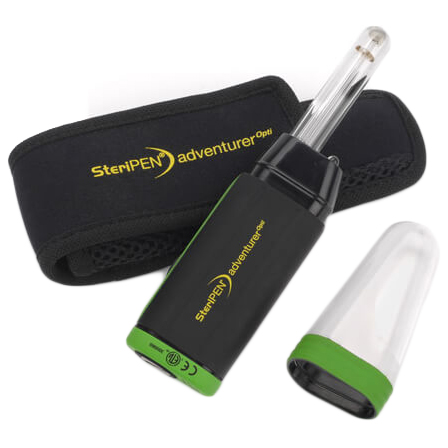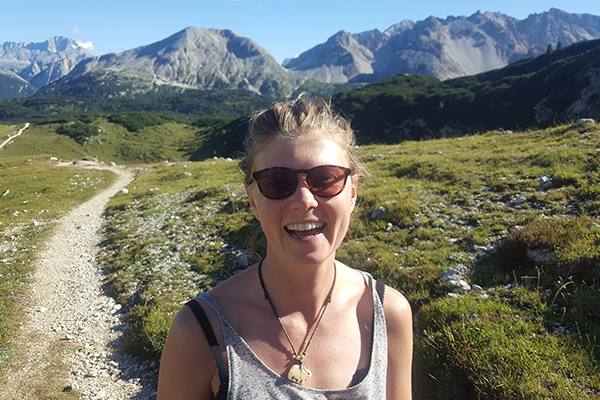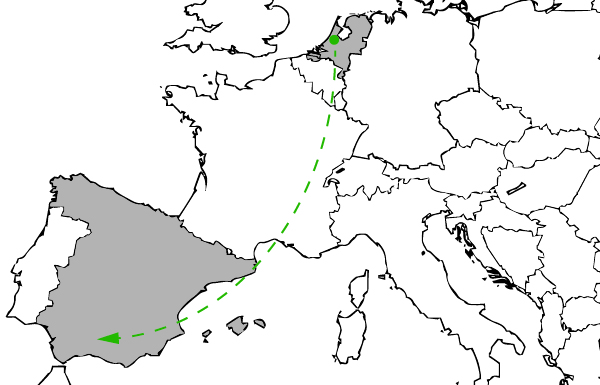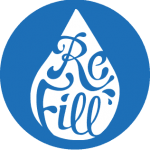With a Water-to-go bottle, you safe plastic, money and stay hydrated. In many countries I would not recommend to drink water straight from the tap, especially when you are not used to it. Unless you have this incredible reusable bottle. We took the plunge during a long trip in India.
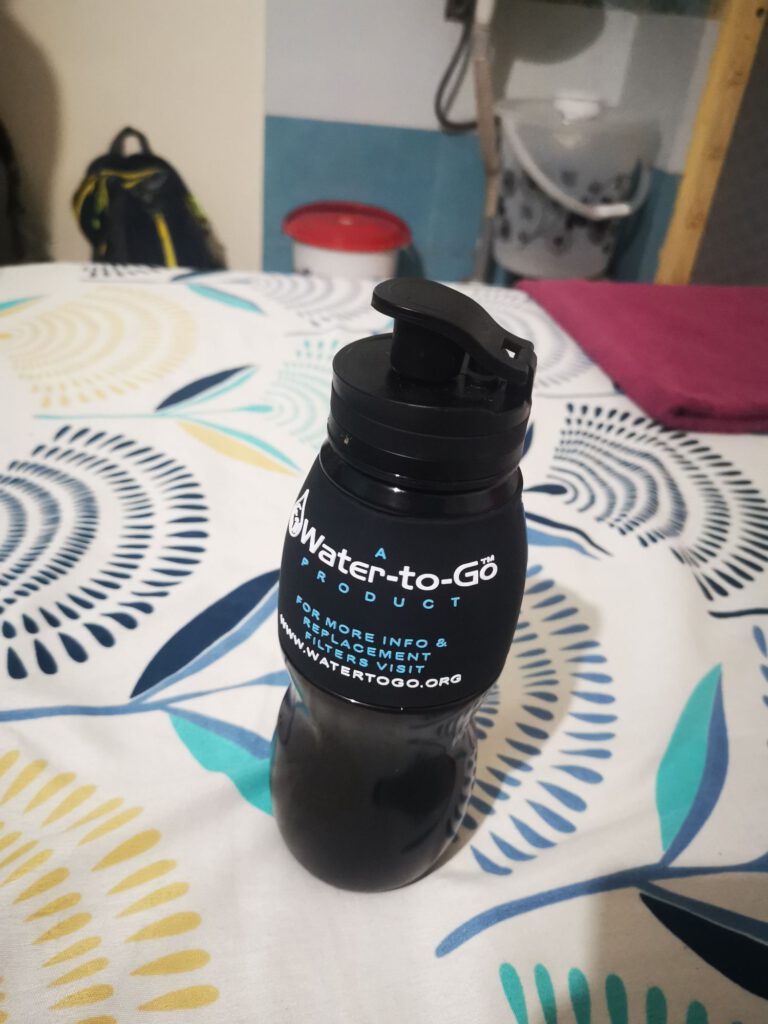
WATER-TO-GO BENEFITS
I really think this is a great product because:
- It filters 99.99999% of microbiological contaminants in the water. After traveling five months in India, I have not been sick. All this time I was drinking tap water from my bottle.
- It takes out bad smell and odours of (tap) water.
- The bottle is affordable. I paid around 40 euros for a 0.75L bottle, including one filter. There is also a 0.5L bottle.
- The filters last long. Mine can be used for 2 months or 200 L. I brought 2 spare filters for this trip.
- The bottle is durable and easy to clean. I must admit the design is far from fancy, but it works amazing.
- The bottle is BPA-free
- I support the mission and vision of the company.
HOW IT WORKS
So how can this bottle with its tiny filter perform it’s magic? I tried to write a good summary, but that did not work. Therefore I copied the following text from the official website:
“Our reusable, BPA free water bottles contains our own unique 3-in-1 filtration technology effectively providing clean safe drinking water from any non-salt water source around the world.
Three different (1 traditional and 2 nano) technologies are combined in one filter cartridge to remove up to 99.9999% of microbiological contaminants in water.
The three technologies used in a filter are:
- Mechanical filtration – A tiny pore size, so small contaminants can’t fit through.
- Electrical – A positive charge reduces the pore size even further and attracts contaminants like a magnet, trapping them inside the filter.
- Activated Carbon – Unlike most carbon based filters, instead of using adhesives to glue the carbon particles together, (which vastly reduces the carbon’s efficiency) it is contained within the membrane, helping to reduce contaminants whilst eliminating bad tastes and odours.”
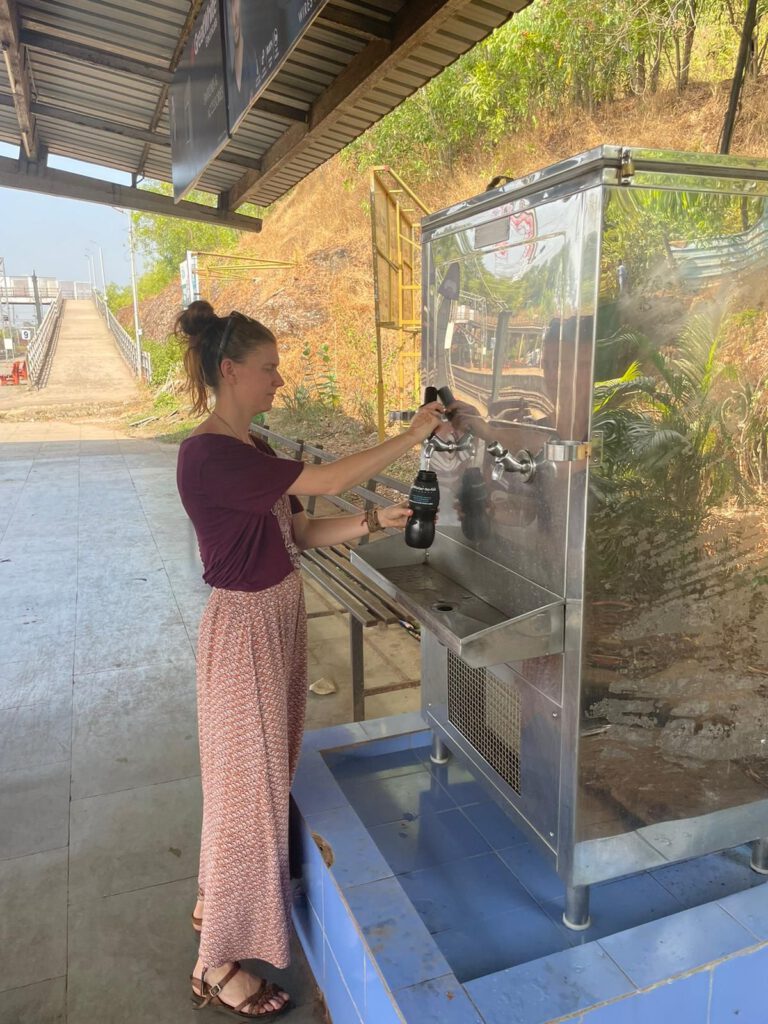
WHAT NOT TO DO WITH YOUR BOTTLE
Here are some tips… Very obvious but still good to know.
- Don’t fill it with salty water.
- Don’t leave the water inside for too long. Or if you do then refresh the bottle first before using.
- Don’t use aggressive cleaning detergents.
- You can only drink directly from the cap. You cannot use this bottle to filter a bucket of water. For this purpose, use another aid such as the Steripen
WHERE TO BUY?
Look on the company’s website to see if shipment is available in your country. If not, search online. Not yet convimced? Read the many customers’ testimonials.
